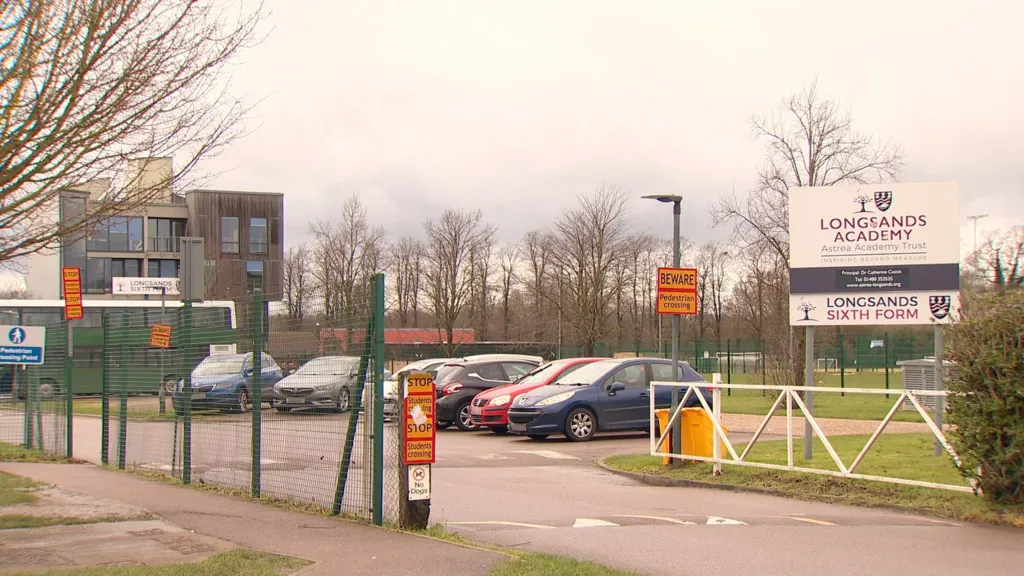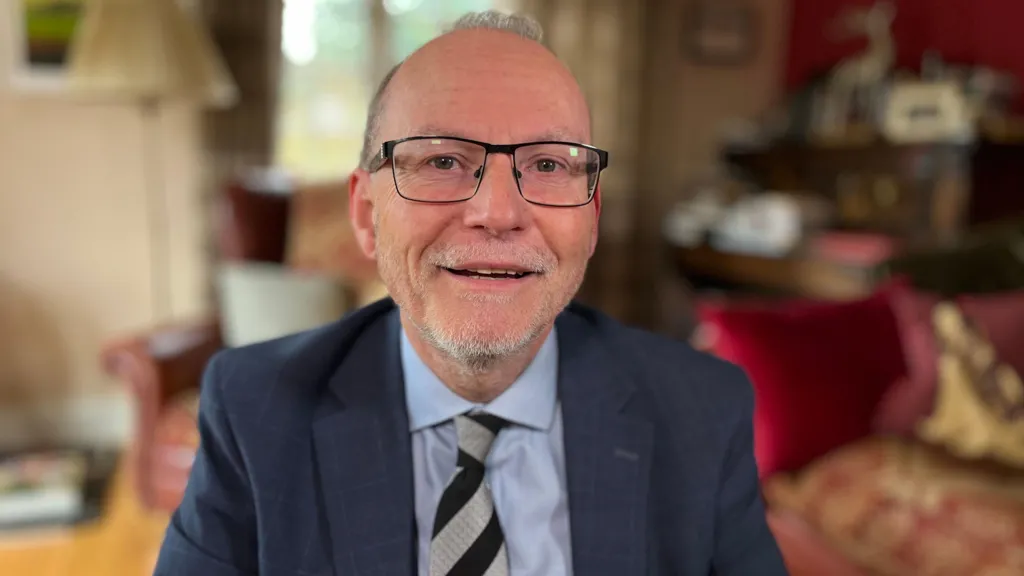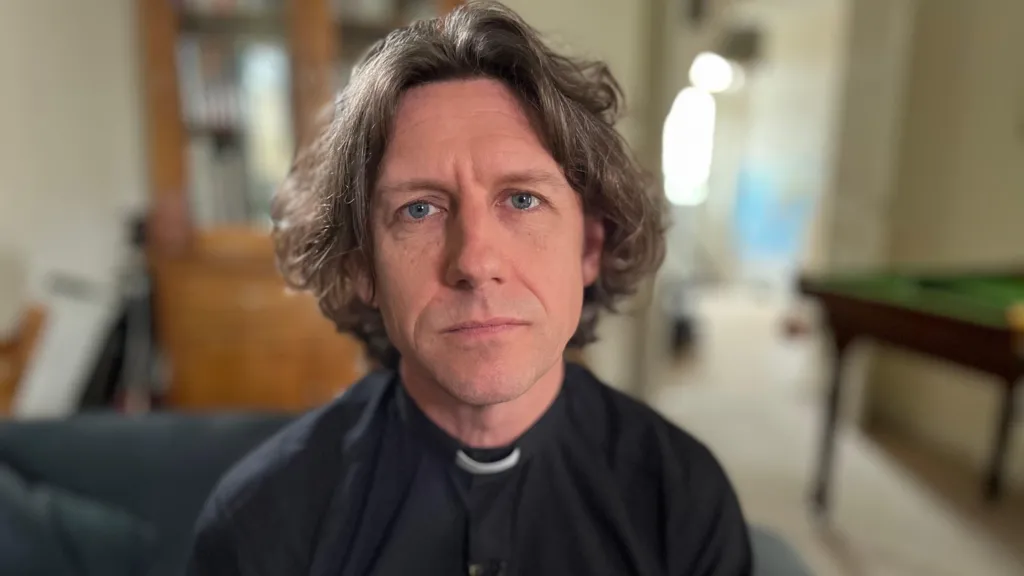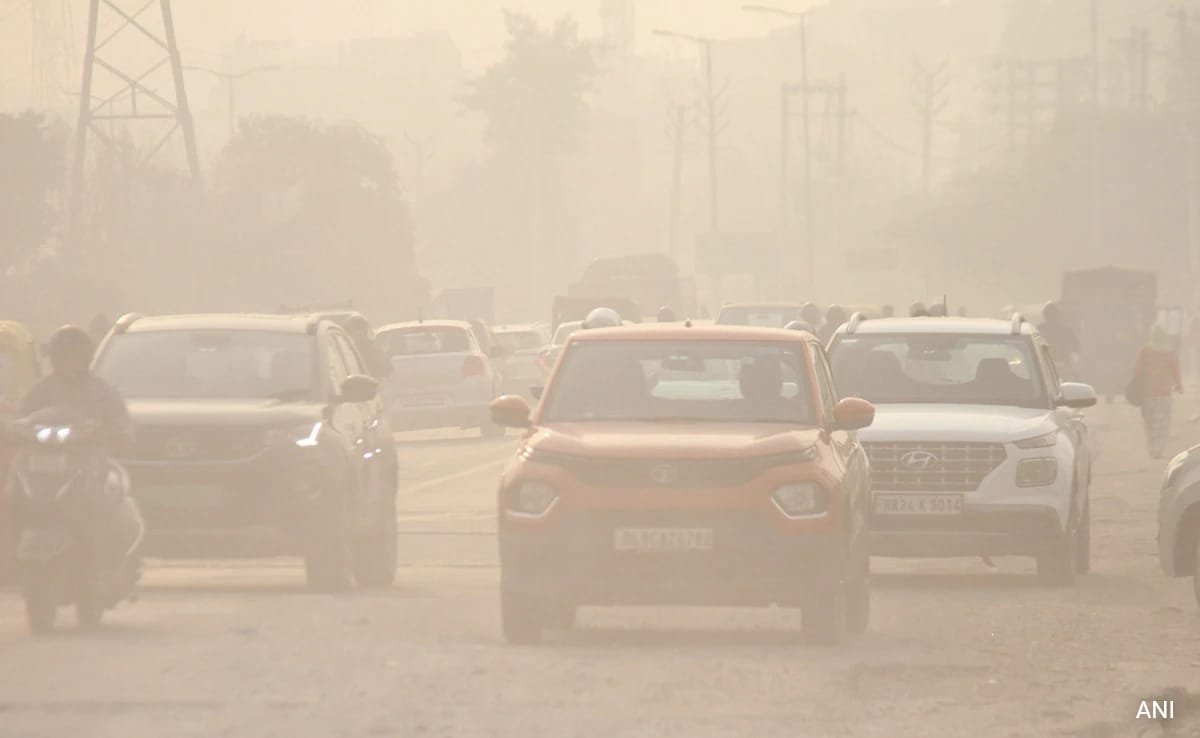
It promises to “inspire beyond measure”, but some teachers at one academy trust say fear and toxicity run through their schools. Astrea Academy Trust is responsible for some 15,000 pupils, including nearly 5,000 in Cambridgeshire. But how are the trust’s controversial behaviour policies having an impact on the children and the teachers who must implement them?
Astrea runs 26 state-funded schools, four of which are secondary schools in Cambridgeshire – Cottenham Village College, St Ivo in St Ives, and both Ernulf and Longsands in St Neots.
Kate, not her real name, says she became a teacher to inspire her pupils, but left Ernulf fearing the repercussions of straying from their strict rules – policies the trust says were introduced to address poor student behaviour post-Covid.
“It’s just basically: be in line, be silent and just get through your day. Do as you’re told,” she says.
“You don’t like it? There’s the door. It’s the Astrea way or the highway. This is absolutely toxic.”
Parents report struggling to get their children to school on account of the stringent rules, with some developing tics that have not been seen since early childhood.
Hundreds of corrections for “negative virtues” are handed out each week, which amount to half-hour or hour-long after-school detentions.
Some children check their pencil cases multiple times before leaving the house for fear of packing the wrong-coloured pen, before arriving at school to queue for uniform checks, parents say.
Kate worries the atmosphere in these schools will produce a generation of fearful, anxiety-stricken children with severe communication issues.
“We are not teaching them, we’re not adapting to them, we’re not supporting them,” she adds.
“We have to give detention because that’s the culture we follow… it’s either you or me.”
‘It felt like they were droids’
Andrew, not his real name, marks the contrast between the smiling children at his new school and the pupils he used to teach at Longsands.
“The students seem to have their heads down. It was quiet. Their faces were just without any kind of expression. It felt like they were droids,” he says.
Describing the pre-Astrea days, he says Longsands was a “very human” school with a good reputation in the St Neots community.
The morning and afternoon line ups, where children assemble fire drill-style outside, is standard across several Astrea schools.
“Astrea say they are inspiring beyond measure,” Andrew adds.
“When those students are marched out there and they march back, they have to walk in silence. They just look utterly fed up and I would challenge anyone to find a student that says that they find that experience useful or uplifting,” he says.

Another teacher who left Longsands late last year said staff morale has taken a nosedive in the last 12 months.
“It felt quite unpredictable and unstable… teachers can’t do their best work if they are in an environment where they feel stretched, exhausted, pressured and fearful,” she says.
Laura, also not her real name, said many staff members do not feel as if they are listened to by senior leaders within the trust.
She adds: “It’s really difficult to carry on working in a place where you’re negative all the time and you bring that through to the students as well.”
The BBC has previously reported that up to 90 children were being taught together in one the the school’s halls due to teacher shortages.
Previously, Longsands’ principal Dr Catherine Cusick admitted the school had lost 28 teachers in 12 months.
The trust says teachers are its “lifeblood” and points to retention and recruitment in teaching as a national issue.
They add that all positions at Longsands are currently filled.

Adrian Miller, county secretary of the National Association of Schoolmasters Union of Women Teachers, labelled the behaviour policies “draconian” and “autocratic”.
While these policies may have previously worked in other schools, he does not believe that they are working in Cambridgeshire.
As Astrea runs both secondary schools in St Neots and the only secondary school in St Ives, Mr Miller believes parents and teachers are faced with a tough decision.
Growing concern
A growing number of parents have expressed concern for the future of children at the trust’s schools, with a petition to establish a non-Astrea secondary school in St Neots garnering more than 1,000 signatures.
Matt Finch, vice chairman of the St Ivo Parents Forum, has worries but says their group does not wish to “take the school down,” rather choosing to focus on “positive change and reflection”.
“There are children that are deeply unhappy and aren’t thriving and flourishing, which is what we desperately want them to do,” he says.

Of 745 Longsands parents who responded to the February 2024 Ofsted survey:
- 70% said their child was unhappy at school
- 51% did not feel their child was safe there
- 64% thought Astrea did not deal with concerns properly
The trust says it is “disappointed” in the results and is working to engage with parents and carers.
It adds that its policies are “easy-to-follow and reasonable” and staff are supported to use their professional judgements to make reasonable adjustments.
The trust says it wants a “calm, purposeful and safe environment,” adding that in the “vast majority” of their classrooms, that is now the case.
Longsands Academy was rated as “requires improvement” by Ofsted in 2019. It was inspected again in February and upgraded to “good”.
The BBC requested an interview with the Astrea Academy Trust but this was declined. We also asked them to put us in contact with those who had positive views of the schools and their behaviour policies, but nobody was put forward.
Follow East of England news on Facebook, Instagram and X. Got a story? Email EastInvestigationsTeam@bbc.co.uk or WhatsApp 0800 169 1830.






